We’re so excited to have Ms. Briana McKinnon on our team at Common Ground this year. Her ability to build loving, accountable relationships with our high school students, her background in math and business, and her passion for mindfulness and the outdoors, all make Common Ground a great fit for her. Keep reading this interview with our Education Change Intern team — including Jayden Carty, Sarah Reynolds, Ronald McAuley, Madison Acampora, Taite Popkin, and Joel Tolman — to learn more!
What path brought you to Common Ground?
My first degree was actually in marketing. I was going on a business path, and had no idea I wanted to go into teaching. While I was working on my Master of Business Administration, I got really sick with an autoimmune disease. I was struggling, but didn’t know that I could get accommodations, especially in graduate school. I ended up having to drop out of my MBA, because I was so sick at the time. That experience taught me how important it is to provide the support that students need, whatever the level of education.
When I went back to school, I was drawn to education, and got my masters in business education. I was pregnant with my son at the time. I started teaching at Hope Academy in Orange, which is a school just for students who have an individual educational plan. Most of the population there is on the Autism spectrum. Having a strong background in math, I worked as a math and business teacher. I absolutely loved it, so I decided to go back to school for special education. I continued to teach special education at Hope Academy, and then in Old Lyme. I always worked with high school students, mainly between 11th grade and 21 years old.
From there, I moved over to Clinton Public Schools, where my son is a first grader. I loved working where my son was a student. But other things weren’t as good a match. My certification is K-12, but I have always most enjoyed working with high school students. Also, when you are in a traditional public school, you don’t have a lot of autonomy. I wanted to get away from the really strict structures of a traditional public school.
When I found Common Ground, I knew it was a place where I could incorporate my love of yoga, and other things I am passionate about. I walked around the property, and I fell in love, because I am an outdoor person. This kind of environment can do so much more to meet students’ needs. I think there are so many struggles in traditional public schools; they are just now finally addressing social/emotional concerns. The environment at Common Ground just opens up the opportunity for a walk, or a chance to visit the farm, and a chance to be more comfortable in that space. I don’t know if you realize how lucky you are to have this space to become who you are going to be.
What’s your job at Common Ground?
In my role as a resource teacher, I work with the Core 10 students, and also half of our 11th graders. I have a background in math, so I co-teach 10th grade geometry classes with Ms. Climis. We were supposed to have another special education teacher specializing in 11th grade, but it’s impossible – across the whole country, there’s a shortage of special education teachers. So, we did not hire one for 11th grade, and I share that caseload with Ms. Busby.
What can young people rely on you for?
I want the students to know me as someone they can go to for academic support, but for much more than that as well. I know that a lot of students who are not on my caseload come to me for math support. If you ever see me, and I’m not busy, I am happy to help you with math.
I want you to be able to come to me, come to us, with real questions, not just help with your math work. I want you to be able to come to me with your struggles. I am very transparent with my students. They know that they can come to me confidently and confidentially with issues that may not be about their academics.
Sometimes teachers feel a lot of pressure from the outside – whether it’s from the state, or somewhere else – that students need to meet a specific mark by graduation. We lose sight of the fact that you are dealing with stuff that a lot of us don’t know about. At your age, things are put on your shoulders before you should have to deal with those things – whether that’s from your family, or from your friends.
What motivates you to work with the young people at Common Ground?
Working with high school students makes so much sense to me. I give elementary teachers so much credit. High school students are young adults. You have enough self-awareness at this age to be able to have a one on one conversation – what’s truly going on, how can we help you.
Before this, I have worked in predominantly white, mostly affluent parts of Connecticut. I am not from an affluent area, but working with those students – it was a completely different set of struggles that they had. I love being here. I think it’s so beautiful to be able to learn so much from my students, as well as from their families, since as a special educator, I am in regular communication with them as well. I am learning from families, from students, from my fellow educators, what I can do to help you thrive. It’s making me a better person for society. I love working with my students’ parents in particular. They are just much more understanding than parents in other schools. They want to support me to support their child – it’s much more like a team. Coming here every day, I am much more motivated to support you all.
I like that I have a lot more autonomy working with my students. I can focus on how we can learn to understand ourselves and love ourselves better. A lot of students with disabilities feel like there is a stigma against them – and in many ways there is. Part of my job is to help them become more confident within themselves. Common Ground’s commitment to community service, and leadership, is such a powerful way to get out of your own self, or ego, to be able to work with other people. There’s a reward in that. You learn to be part of a community, to appreciate what you have.
I think all the things that Common Ground stands for, I stand for. Not only as a school, but what you can bring outside the school as well.
What are you like as a person?
I love that I get to dress down here – so you can see part of my personality come out in that. Outside of here, I am a huge fan of yoga and Buddhism. I try to practice that in my personal life, and also into my work as a teacher. Not Buddhism itself, but the principles of love and kindness for everyone. I grew up in California, so I’m also a big surfer. If I could, I would rather live in the water than on the land.
I have a 6-year-old, so he keeps me pretty busy. He was just here for the community service day in November. I love the program here so much that I am looking into him doing Nature Year next year.
What were you like as a high school student?
I grew up mostly in the valley of Los Angeles, and also lived in northern California. During my junior year, I moved to Madison, Connecticut. That was a very traumatic event for me – not because of grades or anything, but because of the social anxieties that I had, moving all the way across the country. I went from a school in California that had 3,000 students, to a really small, not diverse community. Madison was very pretentious. I felt very much like an outcast there.
I was very studious up until I moved to Connecticut. The school district I moved to in Connecticut was much more challenging, but I didn’t have support to take on those challenges and changes – not only academically, but socially-emotionally. I was a wreck. I spent my 17th birthday in the school bathroom crying during lunch. I was very sociable in California, and then became really introverted. It was like I was a different person. I found myself trying to fit in later on, whereas in California I was more of my authentic self.
I think that’s where my love of high school students comes from. When I see them have those breakdown days, I don’t care as much what your math score is that day. I care how you are.
What does Justice, and environmental justice, mean to you?
Justice to me means holding people accountable for their actions. It’s also about self-awareness. For me, showing growth is the most important thing. If a student tells me, “I’m not going to class,” I will tell them, “That’s your choice; I’m not going to chase you down the hallway. But you’re going to have a consequence.” My students also know that they are held accountable. I am understanding, I am sympathetic, but they know there’s a high standard.
I think environmental justice is about accountability, as well. If I as a human am not taking accountability for the environment, what is going to happen to it? We as humans are using all these resources, and we need to hold ourselves accountable for the consequences of that, good or bad. Do we sit back and watch everyone trample over our earth, or do we hold them accountable? Are we self-aware, about our own impact? It’s all of our responsibility.
What do you hope to bring to Common Ground?
I really want to stay here, and work with my team to build and grow the special education program into a really strong one.
By next year, I also really want to start to incorporate yoga and mindfulness – not just for students with IEPs, but for all students. I try to do meditation with 10th graders. I almost have my yoga certification, focusing on trauma-informed practice. By next year, you’ll be able to see me incorporating more of that into my classes.
You don’t have to be flexible to do yoga. You can be wheelchair bound and do yoga. Does it help to be flexible to do certain poses? Of course. But the thing that yoga does before anything else is help your mind. The physical stuff is a secondary benefit. I always tell students to give it a try – more than once. If you’re doing these crazy poses, and focusing on your balance, are you thinking about the fight you just had with your girlfriend? No, you’re concentrating and focusing on your breathing. It gives you an hour to not think about all the stuff. You’re not thinking about the fight you got in with your parents, or what you need to do when you get home, or what you got in trouble for. It gives you a little bit of time to just be you, and be in the moment. It’s a beautiful thing.
My best way of introducing students to meditation: Think of your mind full of so much stuff. Mindfulness is about being aware of all those thoughts. People think when they meditate that their minds have to be empty. That’s not going to happen, maybe unless you’re this 40 year practicing monk. It’s about acknowledging it, and moving on.
Is there anything else you’d like to share with students and families?
The door is open to our special education team office. Knock first if the door is closed, because we may be having a private meeting about a student. But feel free to pop your head in, say hi. We appreciate it.


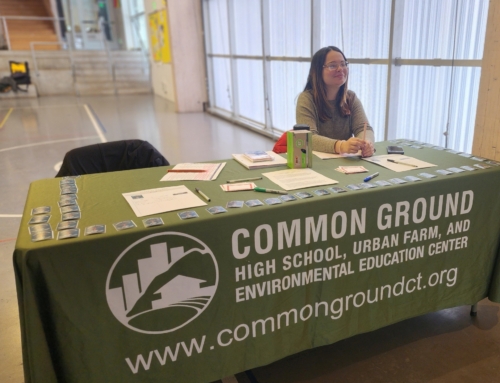
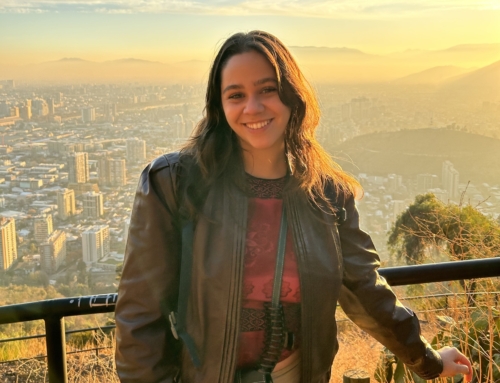
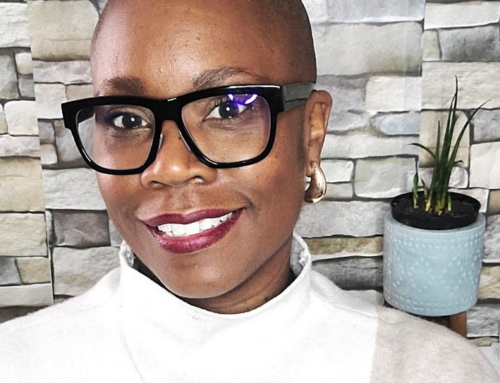
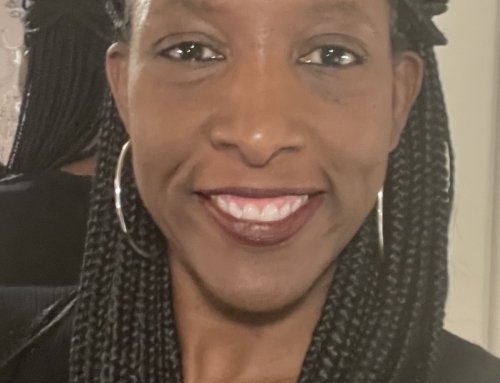
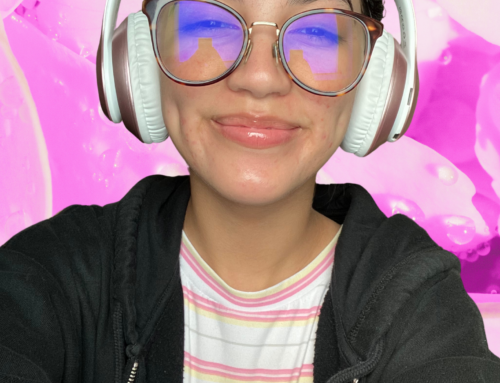
Leave A Comment